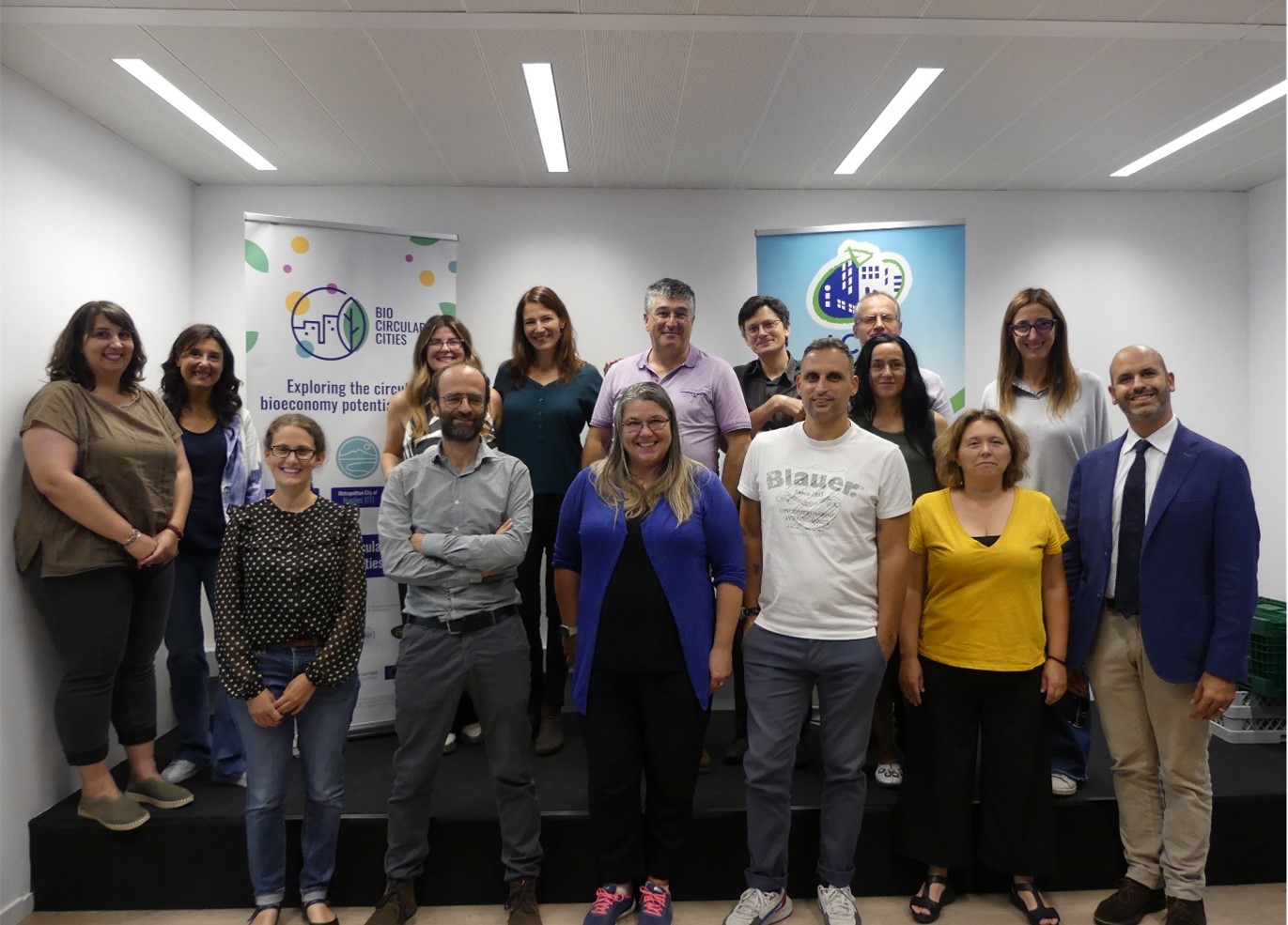Bread prepared with flour from coffee silverskin (a residue from coffee roasting), biochemicals produced from previously unused forestry residues, or waste collection vehicles powered by biomethane from municipal biowaste. These are things that you might be able to see in the coming years in Naples, Pazardzhik, and Barcelona, all thanks to the BBI-JU funded Biocircularcities (BCC) project.
The BCC project closed two years of work on innovative biocircular systems by showcasing its main outcomes to EU policy makers and bioeconomy practitioners during a final conference on 28 September in Brussels. The audience showed a strong interest in the results obtained in the three pilot territories – Metropolitan Area of Barcelona, Metropolitan City of Naples, Pazardzhik Province –, improving the circularity of three selected value chains: municipal biowaste management, agro-food waste, and forestry residues.
How to make organic value chains more circular: from theory to practice
The project outcomes include recommendations on how to reduce the environmental and economic impact of the three value chains, as shown by the Life Cycle Analysis (LCA) and Life Cycle Costing (LCC) analysis run. Aware of the importance of an enabling policy framework, policy recommendations EU level and national, regional and local level for the three pilot areas are another main outcome of the project. All results were achieved with the help of a multi-actor approach involving local stakeholders and international experts.
As a legacy, the project is not only leaving improved local organic waste management scenarios but also a BCC webtool to assist local waste experts and decision makers in identifying relevant technologies for the processing of a variety of organic waste and residues. The tool takes into consideration the local context and the objectives regarding the bio-based end-products considered or the environmental performance. The web tool is on the one hand building on data to be entered by the user related to the available feedstock and current organic waste management system, the type of bio-based end-product targeted, the potential environmental performances targeted, and political and economic incentives. On the other hand, it has an integrated background database for technology selection that, in combination with the user’s answers, produces a ranking of 14 integrated technologies and explains the results and technologies.
> The main project outcomes can be found here: Exploitation factsheet
Biocircularcities and after?
Considering the potential benefits of all explored scenarios, the pilot partners are now in discussions with local decision makers and key stakeholders to prepare the practical implementations. Pazardzhik intends to continue to exploit on the pilot scenario dedicated to a decentralized biorefinery producing biochemical products. In Naples, the successful example from the coffee chain provides a motivation to spread and to develop the circularity of other value chains of the agro-food industry such as waste coming from tomato processing that could be transformed into bioplastics. The Metropolitan Area of Barcelona is already planning to focus on food waste prevention in 2024 and, at the same time, to implement the upgrading of biogas into biomethane. To ensure the sustainability of the new value chains, all local partners agreed on the careful selection of sustainable organic waste collection and transport systems, as the high carbon footprint of the collection itself was one of the key findings of the LCA carried out.


